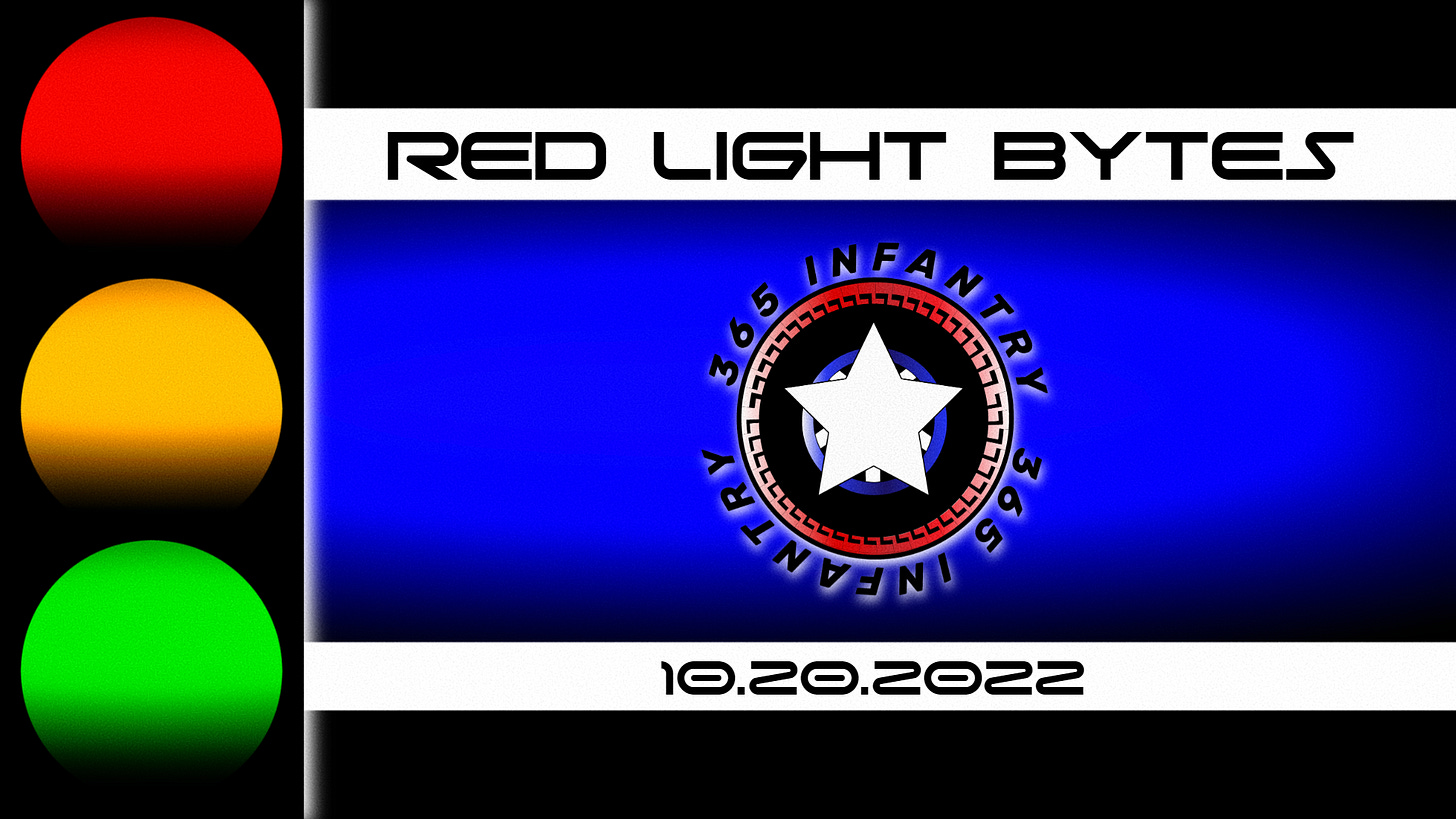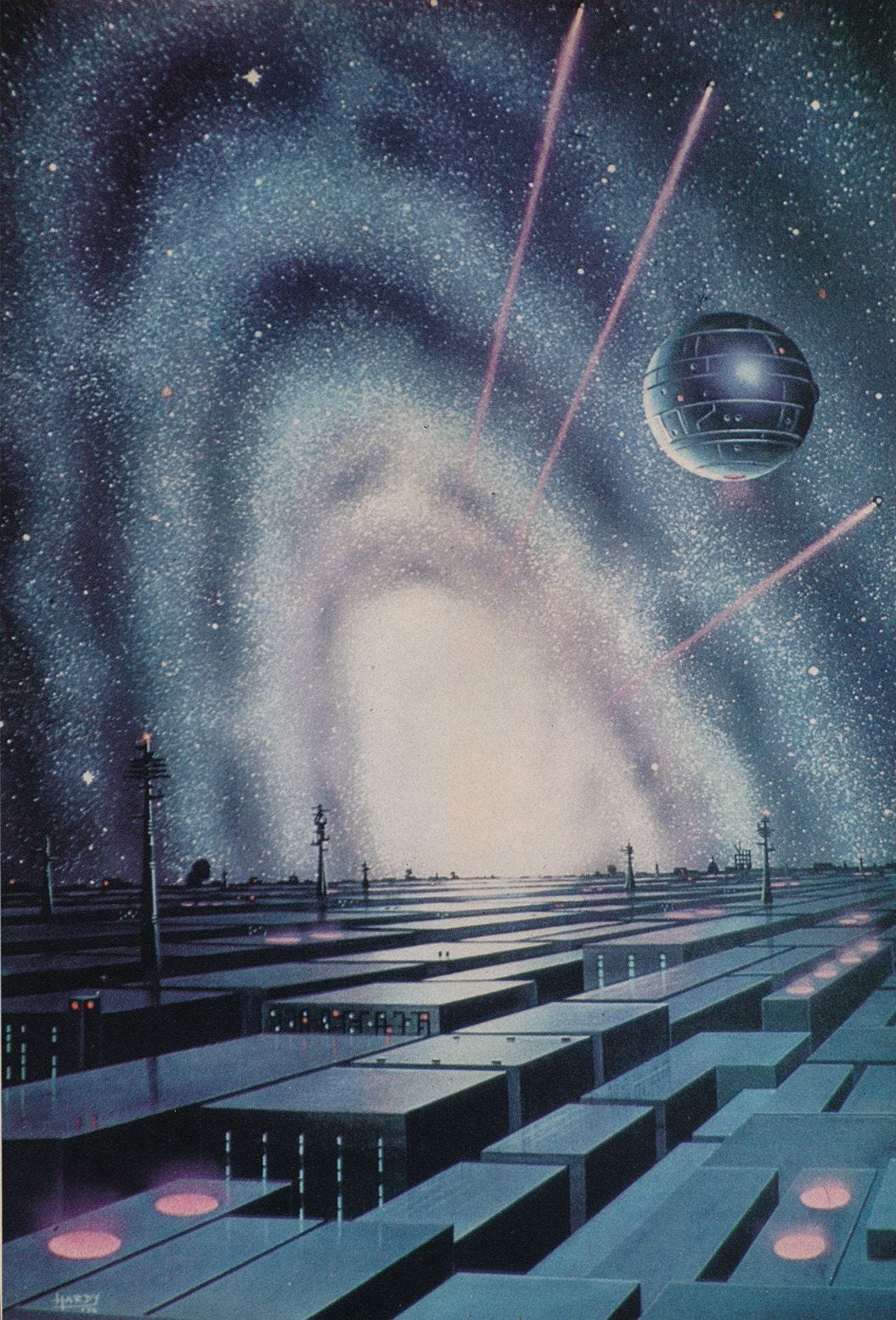The News
SERIES NEWS: The first draft of Urban Avenger III is complete! This brand-new adventure sees Haven’s live-in vigilante and her lover trapped in the bowels of a complex on their way to snuffing out a police station. From here on out, running revisions will be made to all stories leading up to publication in December, with only Speedfreak Files III left to be fully written. Production of story art by Kevin John Jacob is set to commence this week as well.
EXCLUSIVES NEWS: Forthcoming serialized audio program Alan Firedale is in full production mode, with the free pilot in the recording phase and Episode 1 still being scripted. Sound design & music are being produced parallel to the writing and recording process. Firedale promises to be a fun in-world salute to radio shows of old as it centers on the adventures of a mysterious young vagabond and his high-tech hot rod as they cross paths with the forces of the distant dictator General Langdon, helping those trampled under foot to fight back.
Battlefield Thoughts
This week, I had the great pleasure to hop on the podcast of one Mr. Brendan Heard, best known to many as The Aureus Press as well as the creator of the excellent illustrated science fiction magazine Aegeon. What was meant to be a conversation about media literacy and some of the topics discussed in last week’s “Battlefield Thoughts” turned into a fun, free-flowing discussion about everything from vintage media to producing art and entertainment to digressions galore.
I had hopped on the stream a worn-out man. My verbal ticks were in full effect, my train of thought derailed more times than I could count, and I made probably the worst pitch I’ve ever made for a screenplay of mine, and all with good reason. I was simultaneously riding high and low off of a film shoot this past weekend, I had projects at my back, projects ahead of me, and I’m still reeling from a cold I caught weeks ago. In short: I was as busy as I could possibly be.
I was half-tempted to postpone the appearance after its initial delay, but I’m glad I didn’t. The reason?
It gave me relief.
Burnout is perhaps one of the deadliest ailments to befall any creative. I’d argue it is worse than writer’s block because at least block can be cured by rekindling your creative spirit or brute-forcing your way through the creative process. Burnout is a whole other beast. It debilitates, it overwhelms. It saps the life out of you. It is the end result of running yourself too ragged for too long.
Getting to just sit and chat with someone about what’s on your mind was just what the Art Doctor ordered. That and a viewing of Michael Mann’s 1983 fantasy horror The Keep the night before.
Hopping on the ‘cast gave me a chance to draw on my knowledge, refresh my memory, and vamp with a fellow creative, and I could not have needed that at a more crucial time than now, in the heat of a ton of creative projects.
So to Brendan I say thanks for having me on. And to my fellow creatives, I’ll leave you with this: never forget to make time for yourself. You can only keeping running the marathon for so long before your legs give out. And fortunately for me, all it took was one good chat (and a cool movie) to get me back on the track.
Streetwise Caviar
Now here’s something that had me from the moment I laid eyes on it.
English space artist David A. Hardy forged a world of iron in his 1974 work Metal Planet. Reportedly inspired by the Galactic Empire capital Trantor in the legendary Isaac Asimov’s 1951 novel Foundation, Hardy masterfully melds hard-edged geometry, a cold color palette, and a proto-Death Star hovering above all in the face of a shining galaxy.
A lifetime member and European VP of the International Association of Astronomical Artists, Hardy has been crafting art infatuated with the heavens since the age of 14, producing covers for the likes of Patrick Moore, Arthur C. Clarke, and Carl Sagan, and magazines such as The Magazine of Fantasy and Science Fiction and Analog Science Fiction and Fact
Today’s chaser for Metal Planet is a soundtrack selection, “Freedom” by Patrick Gleeson for the 1982 animated film The Plague Dogs. A notorious Richard Adams adaptation from the director of 1978’s Watership Down, Martin Rosen, the moody synth soundscapes and effective splashes of orchestral color create a perfect blend of chilling ambience and pure awe.
The song proper this week is a special tune for a special project. From the all-star 1985 record Phenomena, it is “Kiss of Fire,” sung by Glenn Hughes of Deep Purple fame.
Or perhaps Trapeze is the band to namecheck…
Created by brothers Tom & Mel Galley and Metal Hammer founder W.F. Rimensberger, the heavy AOR project brought together the likes of Richard Bailey (Magnum), Neil Murray (Whitesnake), Cozy Powell (Rainbow), Don Airey (Rainbow), and Ted McKenna (Michael Schenker Group) alongside the colossal voice of Hughes.
Their purpose?
To tell the story of (and I’m not making this up) a telepathy-powered supercomputer with the ability to open doors into other dimensions. The plight of one “Professor Limit,” aided by his telepathic (and illegitimate) daughter Lucy, hounded by feds with interests in the project, ultimately leads to the Professor’s demise and the daughter being perma-connected to the machine in a freak accident. It is up to the girl’s real father, a telepath by the name of Chasen, to enter the machine and save her from the sprawling multidimensional world.
With Tom Galley’s terrifically insane premise in tow (one designed for the purposes of a media franchise that refused to materialize), “Kiss of Fire” sets the mood perfectly. Glenn Hughes gives a tremendous performance, tearing through the cryptically macabre lyrics with his customary power, the lines presumably about the incredible machine itself and the horrors it unlocks. With a killer riff and chorus, Powell’s inimitable percussion, and delicious 80s synths poured over it all, the song has fallen into hot rotation around here at 365 HQ.
Phenomena as a project is a fascinating one that managed to devolve from multimedia production (Phenomena & Phenomena II: The Dream Runner) to narrativeless supergroup (Phenomena III: Innervision) to plain-old studio concern (Psycho Fantasy and onwards). Regardless, “Kiss of Fire” and the debut album rule eternal as one of the most electrifying AOR recordings of the 1980s. Recommended wholeheartedly.
“Maybe there was once a human who looked like you, and somewhere along the line you killed him and took his place…”
Few shadows loom as large over modern speculative fiction as Philip K. Dick’s 1968 novel Do Androids Dream of Electric Sheep does. Given our open admiring of the famed 1982 adaptation, it should come as no surprise that our minds cast back to the PKD original as much as they do to Ridley Scott’s immortal rendering. The bedrock of everything from future noir to cyberpunk overall, the story tells of a man forced to confront his own inhumanity in the face of artificial life. Artificial animals for which he and his wife care for, and the artificial humans he hunts down for a living.
When I read Do Androids Dream in high school, it was a genuine revelation. PKD’s crisp prose, complex characterizations, and endlessly engrossing world has stood the test of time for over half-a-century, melding into a head-spinning affair where you’re never sure who is man and who is machine. It sparked my imagination and took me to vistas even grander than those of the great Doug Trumbull’s miniature dystopias.
This science fiction classic is essential reading in every sense. Recommended without reservation. Best grab an earlier edition, as PKD set the action in 1992, not the “future-proofed” 2021 of latter-day editions.
A Tale to Tell…
This week’s tale pays gentle tribute to the filmic version of Do Androids Dream of Electric Sheep, on top of being an attempt at some good old-fashioned Twilight Zone theatrics.
The Sabbath of J.F. Kwan is the tale of a Haven resident who has grown weary of his live-in assistant, a state-sponsored module operating on the A.C.E.S. system. What begins as a simple desire to enjoy the day without heeding every tight-knit itinerary turns into a war between the citizen and his machine. Who wins in the end? Read on to find out more.
May God bless you and this Force. Until next time!








